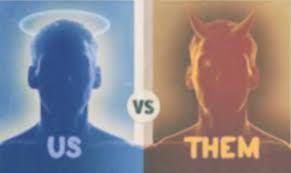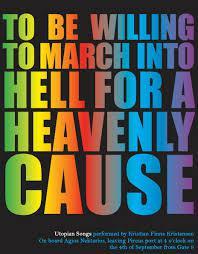Recently on the NewsHour it was noted that Trump’s approval percentage among Republicans has reached record highs. “Yeah,” I said to myself, “because people like me have left the party.” Then pollster Stuart Rothenberg came on, making the same point.  And when an arch-conservative pundit like George Will declares we must now vote for Democrats — any and all Democrats — you know how out-of-kilter politics has become.
And when an arch-conservative pundit like George Will declares we must now vote for Democrats — any and all Democrats — you know how out-of-kilter politics has become.
Not just in America. Britain voted for national suicide with Brexit; its Conservative party embraces it totally while being flummoxed over how to limit the damage; and the opposition Labour Party, having failed with a very leftist platform, has gone extreme left/Marxist. Italian voters deserted the center and put in power two parties of crazies at odds with each other. Large votes for German fringe parties made it hell for Angela Merkel to assemble a governing coalition, and now it’s cracking apart over immigration. Mexico is about to elect as president a populist rabble-rouser contemptuous of rule of law. A retrograde populist creep leads the polls in Brazil. I could go on.
Only Canada and France seem redoubts of sanity.
During the 2016 campaign I kept telling my wife, “He’s got the asshole vote but that’s not enough to elect him.” I was wrong. Enough others threw civic responsibility to the winds.
Of course some voters have always been pretty clueless, motivated by base instincts, simultaneously both cynical and credulous, thus manipulable by demagogues. But demagoguery doesn’t begin to describe this; America has plunged into a moral cesspool, of cruel policies saturated in hate and lies.

Tribalism is part of human nature. This actually helped our early ancestors’ survival. It also provides a sense of belonging, of security, and identity. But in the big sweep of history, casting other tribes as enemies has been diminishing, reducing conflict and violence, as Pinker documented with facts and figures in The Better Angels of Our Nature.

I have written too about Tom Friedman’s latest book, arguing that technological and societal change is now so fast that people have a hard time keeping up with it, and making sense of the world.
Maybe all these factors drive people to cling more tightly to tribal identity. And that it’s happening more on the right is understandable. Those with traditionalist mindsets see themselves and their social verities under assault — from ethnic minorities, women’s empowerment, irreligion, and what they see as sexual sin. In this whirlwind, tribal identity is a kind of anchor and security blanket.
What’s particularly startling is how this political tribalism even trumps religion. You might have thought religious faith would be the stronger. Yet most fundamentalist Christians back Trump, a man steeped in sin, with policies the very antithesis of “love thy neighbor.” Their political loyalties seem impervious to their supposed religious scruples.

(To be continued)
Advertisements